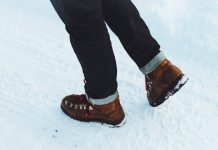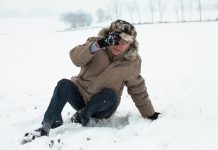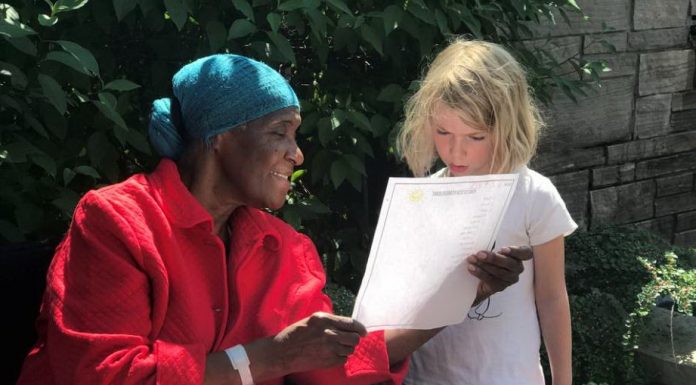Now that the weather is warming up, you will want to be well prepared for the best and worst of what summer can bring. While we tend to think of the winter months with snow and cold as presenting safety concerns for seniors, it’s important to be mindful of summertime safety as well. The sun, sand, and beach or pool can make for beautiful experiences, but the beautiful sun can contribute to sun burns and the lovely pool can cause unexpected slippery surfaces that may contribute to a fall. The great outdoors can present a great risk for getting lost or getting bitten by ticks, bees, and mosquitos. We certainly want seniors to get out and enjoy all that summer has to offer, but a few simple strategies to be well prepared can reduce unwanted, unwelcome, and unsafe situations this summer.
Stay hydrated
It’s important to drink non-caffeinated non-alcoholic beverages throughout the day even if you are not thirsty. Unless you have instructions from your healthcare professional to minimize your intake of fluids, try to drink 6-8 8 oz glasses daily. If that’s simply too much liquid, try popsicles, jello, sherbet, Italian ice, smoothies or even ice chips. If you begin to feel dizzy or lightheaded or confused, you may be dehydrated. It’s important to notify family or your healthcare provider of these symptoms as they may indicate need for urgent treatment of dehydration which can be life threatening in the elderly.
Stay cool
On the hottest days of summer, it’s important to keep blinds, shades, or drapes closed to keep the sun out while the windows are open only a crack. Open windows at night after the temps have fallen in order to let a breeze in. Have a small fan blowing to circulate the air with one fan blowing the hot air out of the house and another fan blowing lightly on your body. Take a cool shower. Wear light- and light-colored clothing. If you do not have an air conditioner, make a visit to an air conditioned place – a mall, a grocery store, a theatre, a church or synagogue, a senior center, a YMCA, or a gym to cool off for a bit.
Wear proper head gear
Protecting the head from the powerful rays of the sun is important to avoid sun burn of the scalp and to contribute overall to staying cool.
Wear proper footwear
Whether you’re enjoying a summertime hike or lounging at the pool, it’s important to wear proper footwear to avoid injury or a fall. “Water shoes” are widely available and “slip proof” vs traditional flip flops which provide very little support and can be very slippery on wet surfaces like at a pool. Proper hiking shoes or tennis shoes with a solid and comfortable base of support and a wide toe box are a worthy investment for the trail hikers to optimize comfort, minimize injury or falling.
Use adaptive equipment
This is especially important on uneven surfaces out on the trail or even at the beach. Simple walking poles are widely available and used by people of all ages. They are lightweight, durable, and pack easily. They can make quite a difference with balance and support when out walking.
Take a well charged phone and an extra battery
Like a good boy scout or girl scout knows, being prepared is wise advice. This is certainly true when it comes to having a way to contact someone in case of emergency or if you get lost. Take a well charged cell phone and a charged back-up cell phone battery with you, especially if you will be on a long outdoor excursion in remote areas. Keep your phone on “airplane” mode to preserve battery life while hiking.
Bring a flashlight and/or flares
It’s wise to keep a flashlight in your car or in your back pack when you go hiking to use if it becomes dark and you cannot see or if you need to have a way to make your presence known to others.
Bring snacks and liquids when you’re going to be out for more than a few hours, put them in a backpack or fanny pack. Fresh hardy fruit like an apple is a good idea as are energy or protein bars. Freezing a water bottle overnight and placing that in your backpack in the morning is a great idea – the water melts as you walk allowing you to drink it over the course of several hours and it can keep you cool as well as it presses against your back in the backpack – a quart sized bottle is adequate but it will depend on the intended length of your walk.
Let someone know your plans
It’s always good to send a quick text or e-mail, letting someone know where you will be going for the day if in fact your plans include doing an outdoor activity by yourself. Let them know your destination and when you plan to be back. Just make sure to check back in with them upon your return so they don’t worry.
Wear sunscreen
Older adults can get sunburned, too, and especially those who are taking certain medications that increase risk of sun burn (certain antibiotics, antifungals, anti-depressants, medications for behavioral health, etc – consult your pharmacist or healthcare professional to check if any of your medications put you at increased risk). SPF 30 or higher is recommended. Limit time in direct sunlight and sit in the shade. Wear sunglasses to prevent eye irritation from excessive sunlight.
Bring extra medications
If you plan to be gone for overnight or longer, be sure to double check the adequacy of your medication supply and consider bringing extra medications. You don’t want to run out somewhere in the north woods where there is no pharmacy…
Bring a list of your medical team/and emergency contacts
This is an always! Keep it on you in the form of a card or medic alert bracelet.
Don’t forget to have fun! Summer in many parts of the country is short and sweet – but seniors should also be mindful of making it safe!


























